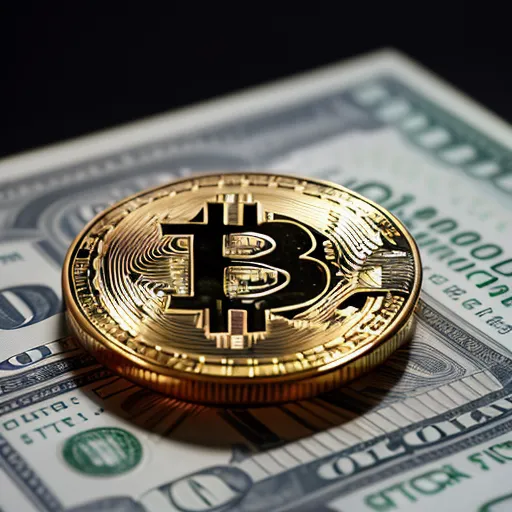
Is it Time to Replace the Dollar as the World’s Reserve Currency?
For decades, Americans have been told that the U.S. dollar’s status as the world’s reserve currency is a blessing. It’s framed as a symbol of our dominance, our stability, and our leadership in the global economy. On the surface, there are clear advantages: we can borrow cheaply, run massive deficits without panic, and punish rogue countries with crippling economic sanctions. But beneath that surface lies a truth that rarely gets airtime. The reserve currency status of the dollar has quietly hollowed out America’s working class.
For decades, globalists have capitalized on the ignorance of the American public as it relates to trade. If you listen to an indoctrinated leftist, or even a working-class centrist, you’ll find in most cases their understanding of trade deficits is very limited. The popular view is that trade deficits generally benefit both countries, and raising tariffs to address an imbalance is bad for the country on the deficit side of the ledger because it will raise prices and cause inflation.
This simplistic view of a complex issue is dangerous and potentially self-destructive for America, and much of it ties back to the dollar as the world’s currency.
To understand why, it’s important to recognize how the reserve currency systems actually work. For the world to trade in dollars, there must be enough dollars circulating globally. That means the U.S. must constantly export dollars, usually by running large trade deficits, importing far more than it exports. In short, America must consume what others produce.
That dynamic has profound consequences. The simplest explanation is this: to supply the world with dollars, we ship our manufacturing jobs overseas. American factories close, workers are displaced, and entire towns go into decline. It’s not just a matter of economic theory; this phenomenon is the lived experience of millions of Americans who have watched their livelihoods disappear over decades while being told it was all part of “globalization.” In truth, it was an inevitable consequence of the dollar’s role in global trade.
The big con was this: If America agreed with globalist politicians, the higher paying jobs exported to China and other countries would be offset by lower prices for products at home, and we would benefit from a burgeoning export business once foreign workers with higher paying jobs started purchasing our luxury and hi-tech products.
The actual result? A consumer economy built on debt, cheap imports, and financial speculation instead of one grounded in production, innovation, and meaningful labor. Wall Street spits out a newly minted millionaire every day while Main Street dies a slow, painful death.
The financialization of the American economy, where money is made by moving capital, not building stuff, has only widened the wealth gap. Capital inflows from around the world flood into U.S. stocks, bonds, and real estate, inflating asset prices. That’s great if you’re heavily invested, but if you’re a working-class family trying to buy a home, save for retirement, or send your kids to college, your burden has grown exponentially every year. You’re getting crushed. Asset inflation is essentially a silent tax that impacts everyone with nothing to offer but their labor.
Even worse, the strong dollar that results from the reserve currency designation makes American goods more expensive abroad, squeezing out small and mid-size manufacturers from competitive markets. Foreign competitors, typically subsidized by the state, undercut prices and erect nearly impossible barriers to entry. So, the U.S. becomes more dependent on imports, more indebted, and more divided economically.
And all the while, we keep printing dollars and borrowing cheaply, which encourages fiscal irresponsibility in Washington and reckless credit expansion at home. The dollar’s global dominance enables a kind of economic gluttony, disconnected from discipline or sustainability.
It Doesn’t Have to be This way.
Enter Bitcoin, a decentralized, deflationary digital currency that offers a substantially different monetary model. Unlike fiat currencies, Bitcoin is not controlled by any government. Nor can it be printed at will, or manipulated for political aims. With a fixed supply of 21 million coins, Bitcoin is immune to the greed and pandering of politicians looking to dole out free money for votes. In essence, it is inflation proof. Most importantly, a nation isn’t required to gut itself just to supply the world with currency.
If Bitcoin were adopted as a global reserve asset, perhaps not as a direct replacement for all national currencies but as a neutral settlement layer on an international scale, it could level the playing field. No single country would have the burden of running permanent deficits that spiral into a sovereign debt crisis. The immense costs of maintaining reserve currency dominance would disappear. The tension and economic conflicts between competing currencies would also become moot.
For the U.S., it would provide a chance to rebuild an economy based on a solid manufacturing base and fair wages. Slimy politicians always looking out for their own self-interests first would no longer have the fiscal tools that allow them to pass reckless and unsustainable spending bills. They would be compelled to play by the same rules as everyone else, and they would be forced to conduct the people’s business within strict parameters, which could serve as the foundation of a more equitable and resilient economy.
Bitcoin is the democratization of money itself. As Elon and DOGE have demonstrated, our current monetary policy is controlled by unelected technocrats and central bankers. Ordinary people have no say. Bitcoin changes all that. It puts monetary policy back into the hands of people, not institutions. For working-class Americans who’ve been completely screwed by a rigged system they don’t really understand, that could be the most empowering shift of all.
There will be Some Pain and Loss of Influence
Naturally, the transition would be difficult, especially at first. The dollar’s dominance is backed by military might, geopolitical influence, and a formidable global financial infrastructure. However, if the events of the past couple of weeks illustrate anything, it’s that cracks are showing. The de-dollarization efforts among BRICS nations, our weaponized sanctions that push others toward alternatives, and unsustainable debt levels at home all are sending red flag symbols that we are vulnerable to a variety of potential economic threats.
Bitcoin isn’t a panacea, but it provides a real alternative to a monetary system that has served elitists on Wall Street while sacrificing workers. It’s time we start questioning whether the privileges of reserve currency status are truly worth the price we’re paying, and whether a decentralized future might offer a better deal for those who’ve been stuck at the bottom for too long.



